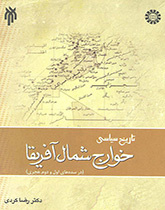
A Political History: Kharijite in North Africa (7th and 8th Centuries A.C)
The emergence of the Kharijite sect is one of the most thought-provoking points in the history of Islam. This religious-political group, with a superficial interpretation of the Qur'an, first denied the right of human beings to arbitration in disputes. They then considered the ruling and political domination of human beings over human beings to be unjust and asserted it to belong to God alone. Although this group was suppressed in the Battle of Nahrawan due to the extremist actions resulting from considering most Muslims as infidel,as anticipated by Imam Ali (as), they remained in the political scene of the Islamic world for centuries and played an important role especially in the struggle against the Umayyad caliphate.The essence of the idea of all Kharijite sects was common; beliefs such as attention to asceticism, denial of Uthman the third caliph, criticism of Imam Ali In the matter of arbitrariness, oppression, belief in the non-monopoly of the caliphate in Quraysh (contrary to the common discourse among the Sunnis), etc. The owners of these ideas succeeded in propagating in the lands where there was a ground for acceptance, and using the dissatisfaction of the people with the governors of the caliphate, they could able to establish small local governments. They were able to establish low-sustained regional powers in some parts of Africa, such as western Tripoli, Tangier, Tahrir, and Sajlmasa, and in two cases, stable but small governments. In the present book, we have tried to re-examine the process of formation of this type of government at that point in the history of Islam, relying on source data.




